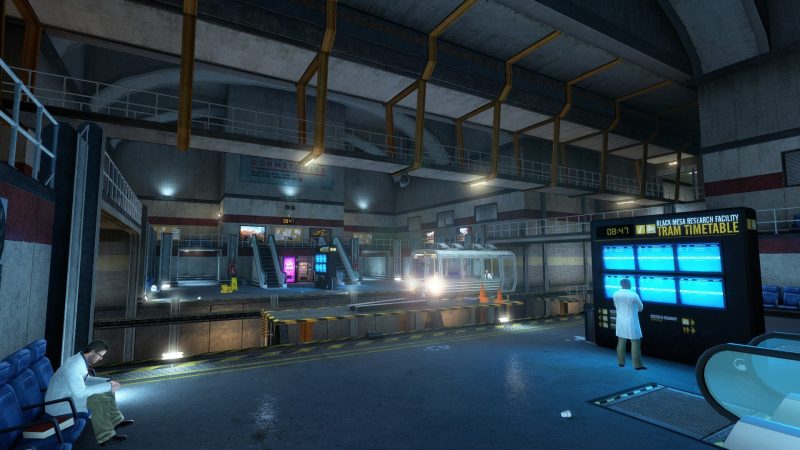After a previous photo of me as an apprentice, there’s now also one of me as a professional gardener at work.
Category: uncategorized
Why are we still doing this?
I’ve always felt that the boom days of small personal RPG sites like this was already over when I started 10 years ago. Back in those early OSR days, dozens of people were discussing all kinds of questions and subjects about how to run adventures and campaigns, understanding the underlying design assumptions of early D&D, and how to tweak and modify rules to better suit different specific goals and purposes. Things were very busy back then, even though when you look back at older posts, there was a lot of very short and thoughts blurted out that we would now put on Mastodon or something like that. But still, there was a lot of discussion and response both in the comment sections of posts, and in the form of people writing long form response posts on their own sites. (I said before that comment discussions might be seriously hampered by blogspot now requiring a google account to reply by default until the owner changes the setting, which many people don’t seem to notice because they are always logged in.)
I don’t really see that happen much anymore. I recently made a list of all the sites I remembered from 10 years ago and looked them all up to see who’s left. As it turns out, I think some 90% still had posted something in the last six month and most of them never really had big breaks at any point. I just never saw anything new they posted because nobody was talking about it and sharing cool posts with interesting new ideas. Remember Calibrating your Expectations or the West Marches? Those were significant events that people kept talking about for months and linked to in discussions years later. We don’t really see that anymore. The Classic Dungeon Crawl was an outlier in regards to something in a way of a new “RPG paper” coming out, and that was already three years ago. I also discovered it only years later because nobody is really sharing cool interesting things they found and spreading the word to others.
It would be easy to say that sites like these are just dead and simply an outdated medium that has long become obsolete. But in my personal experience, this really isn’t the case. Even with me not posting much in the way of big thoughts these days and having spend more time on my other Iridium Moons site, I’m currently seeing more comments on my posts than I ever did before. There certainly is still interest and the number of readers apparently even seems to be increasing. It’s certainly not an obsolete medium. I did start a Mastodon account early last winter and put up notifications any time I’ve got a new post on here, so that might be part of more people ending up here. But if I can do that, then everyone can. But so far, I’ve seen very few other people doing that over there.
I think another important factor in this whole situation is that all the easy questions have been sufficiently discussed years ago. Answers have been found and people have largely worked out how they want to modify B/X and AD&D to best suit the needs of the campaign styles they run. There isn’t that much more to say on those topics. But as I said, people are still reading these sites and commenting on the posts. It’s not like we’re just mumbling quietly into the void. Audiences are there and they are interested.
Which leads me to my actual point: Perhaps it could be worthwhile to reconsider why we run sites of this type and what they are for. As a spread out forum for regular discussions, they don’t seem to be in much demand anymore. There are plenty of Discord servers where you’ll get more people sharing their thoughts on your question or idea in an hour than you’ll be getting replies on your site within a day or a week. And for quick thoughts or announcements, there’s Mastodon and others. Where I think WordPress and blogspot sites still have a very strong advantage is in longer-form articles where you can take yourself several hours over multiple days to write out a more complex topic and give it several passes of editing for better comprehension. I set up Iridium Moons as a separate site specifically to use it for posting content about my new Space Opera setting. And I think Spriggan’s Den might probably become even more focused on content about Kaendor and reports on my next campaign that now hopefully finally can get started at some time in August. (I now started a new job that I’ll probably keep for a very long and looking for a new place for my very last scheduled move.) Worldbuilding is my thing, and of course it’s not something that everyone puts that much work into or has as much interest in sharing. But I think that perhaps it could be a useful thing for other people with their own personal RPG sites and who don’t really know where they are going with this to reconsider what these sites are for and if perhaps longer-form articles that go really deep into a subject might be something to give them a new purpose.
No! I’m with the science team!
A mini-campaign in which the PCs are scientists, technicians, and security guards trying to escape from the ruined Black Mesa Research Facility.
 Half-Life has had such a big impact on kids my generation and I know that a lot of the people I’ve played RPGs with over the years are also fans of it. But I don’t recall ever hearing anyone anywhere bring up the idea of using the game as the setting for an adventure or campaign. I guess it’s because the only kind of campaign we really had on the radar that wasn’t Fantasyland was either Star Wars or Shadowrun. Playing normal people in the mostly real world was never entertained as even an option.
Half-Life has had such a big impact on kids my generation and I know that a lot of the people I’ve played RPGs with over the years are also fans of it. But I don’t recall ever hearing anyone anywhere bring up the idea of using the game as the setting for an adventure or campaign. I guess it’s because the only kind of campaign we really had on the radar that wasn’t Fantasyland was either Star Wars or Shadowrun. Playing normal people in the mostly real world was never entertained as even an option.
After a few minutes of thinking about it, I realized that the Year Zero Alien game would be the perfect fit for a short campaign like this. (Unsurprisingly, as all sci-fi and horror themed shooters ever are heavily based on Aliens.) You got the technicians, scientists, and security archetypes for characters, there’s always the same undertones of company management having a good idea what fire they make their staff play with, and the tech level for machinery and personal equipment is pretty much the same.
This is, however, the full extend of my ideas so far. Walls shake, power goes out, nobody knows what’s going on. Try to find a way out of Black Mesa as alien monsters start killing people and later marines arrive to keep anything and anyone from getting out. Conveniently, any time a PC dies, you can always introduce new characters who have been hiding in a locked storeroom that the party is walking by. There is a certain temptation to make it a megadungeon, but when the goal is to find the fastest way to the exit, that’s probably a bad approach. Instead, it could work quite well to have certain bottlenecks where the players have only one or two possible exists from the current area, but they can still roam the current area freely to come up with ways past whatever obstacle is blocking the exit.
Do they really need to name it the “ORC” license?
So Paizo and Kobold Press are at the head of an initiative to create a new open license for shared RPG mechanics that completely bypassed WotC and aims to establish a common standard for second and third tier publishers as well as everyday GM’s for releasing their own material as open content. Great idea, I am absolutely for it.
But they decided to give it a name that shortens to ORC. Like OGL and OSR. I get it, it’s a bit of a pun. Cute.
And I get how this might have seemed like a great choice when things were going very fast and there was a race to establish facts on the ground and take charge of the conversation. But do we really want “ORC” to be the banner under which small content creators unite?
I know this isn’t the kind of subject that my assumed typical readers care about (but still have a really strong opinion on), but orcs are pretty much the main poster boys for controversies about uncritical use of stereotypes in fantasy in the 70s, 80s, and 90s. I’m not too bothered by people who still want to make orcs work in their own creations, or who just use them now as big green humans. Their choice, I’m not going to fight it. But expecting that this is a label that everyone who is interested in this kind of licensing arrangement should unite under does feel like a major misstep. Nobody would expect the greater RPG world to rally behind the motto of “Love the Craft!” or something like that.
I feel like I’m having a pretty moderate position on this topic, but I still feel very uncomfortable with the thought of maybe releasing something as an ORC license product. I got some OSE material in the work that I’d love to share as a proper release, but if future OSE releases would have to be under an Orc license, I actually might rather not to.
I really think this should be addressed before the first actual game material is released under that license. Name it something else. Anything else! Just don’t name it after the most controversial and divisive topic in recent RPG history.
This is so stupid
I think this weeks mass hysteria about WotC revoking the perpetual Open Game License and closing down half of the RPG industry with that move is probably the dumbest thing I’ve seen happening in the 24 years that I’ve been following RPG news and discussions.
People even admit that they are “just repeating what I’ve heard” and that all the current panic is based on is an unsourced “leak”.
Update: More sources are coming out with claims that make it seem increasingly unlikely that it was all a hoax. But I don’t redact my original assessment; I amend it:
This is even way dumber than I thought.
Comments problem
It has come to my attention that there was a problem with an error message appearing under some circumstances when trying to write a comment on a post.
I tracked it down to a known problem with my spam-block plugin, which I now realized hasn’t been getting any updates in over 5 years. I switched it out for one that is getting ongoing support, so the issue should be fixed now.
In case there are issues with comments in the future, I’m now on Mastodon under @Yora, so that’s another way to contact me about comments not working when comments are not working.

